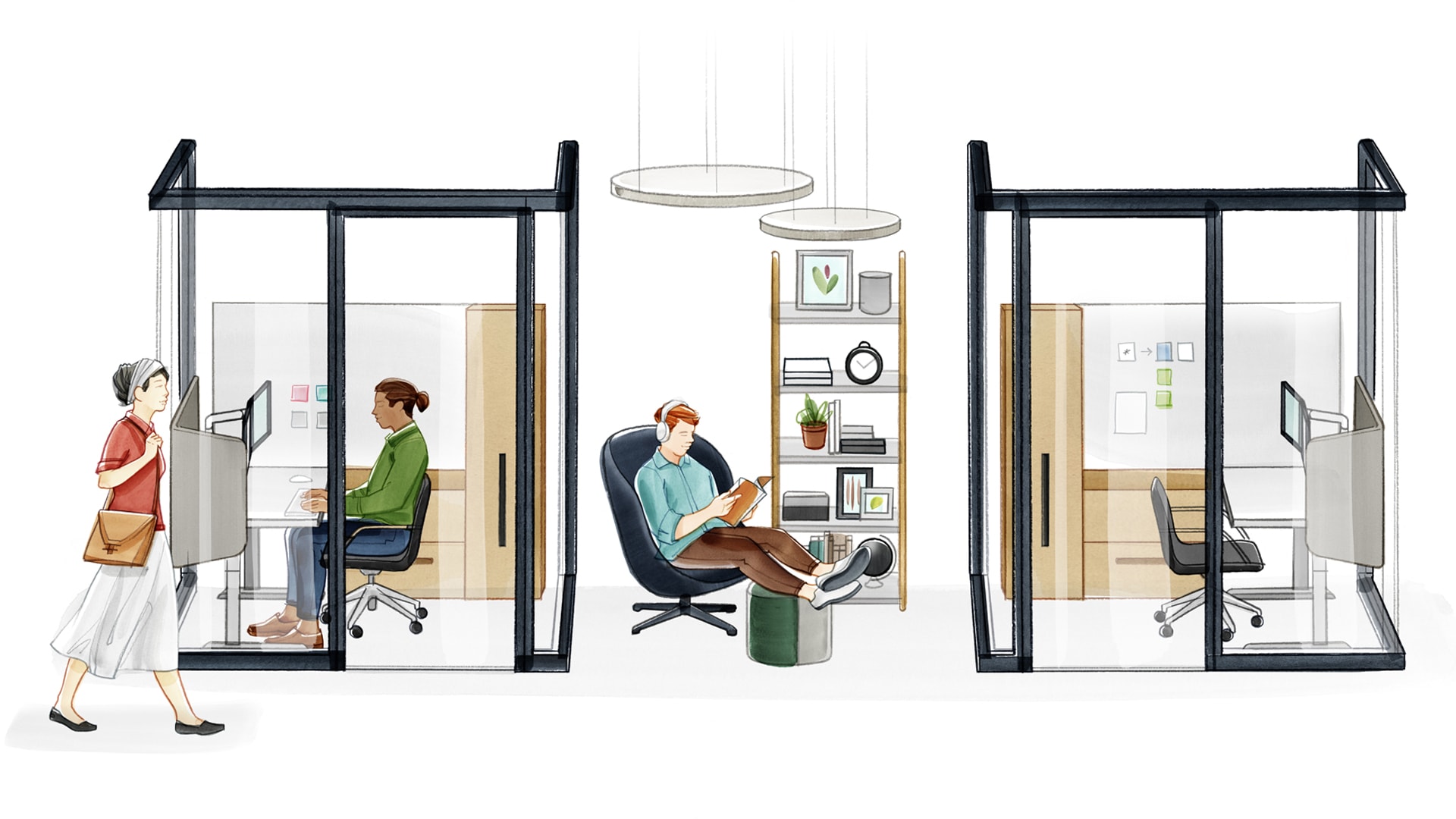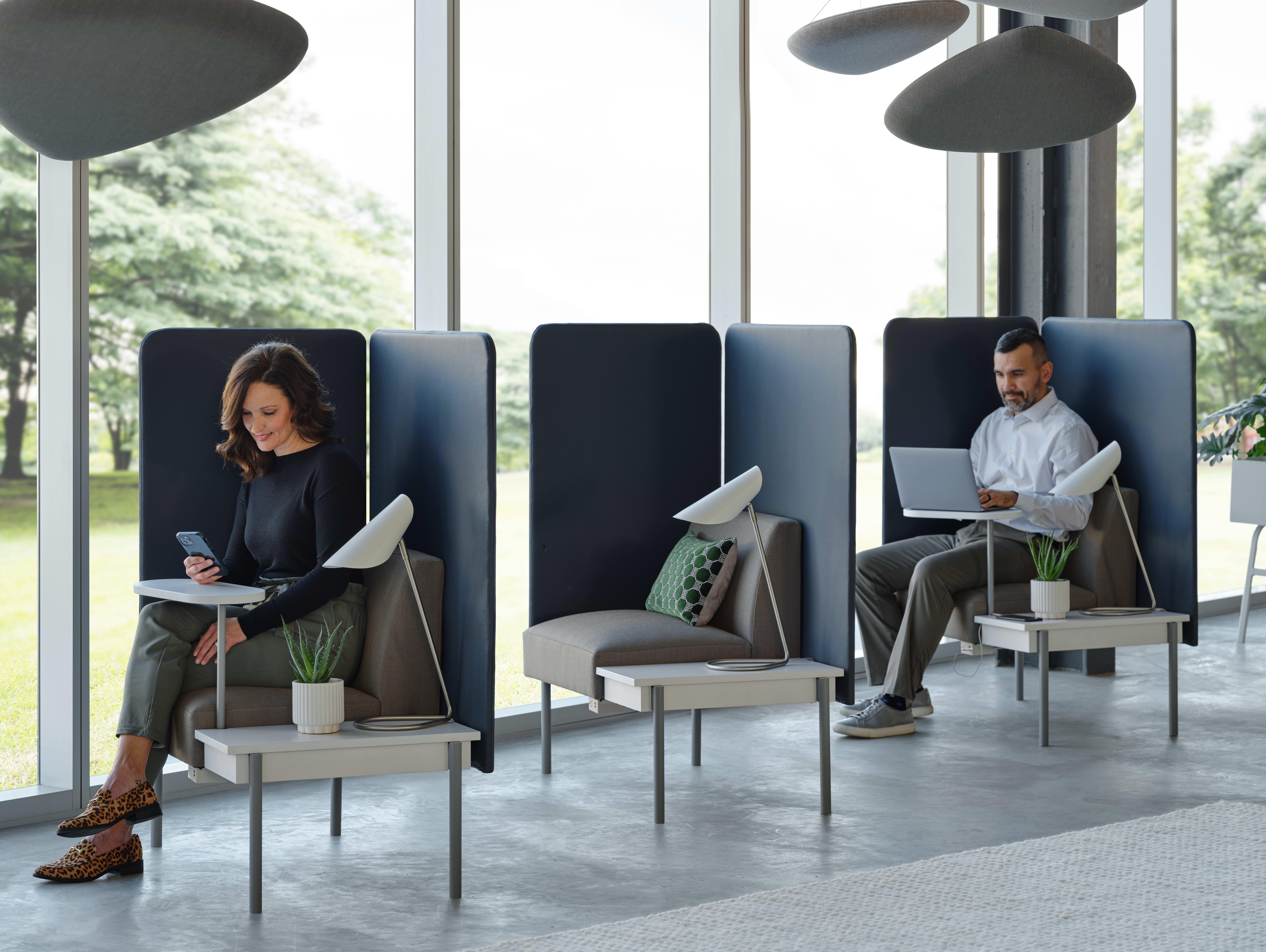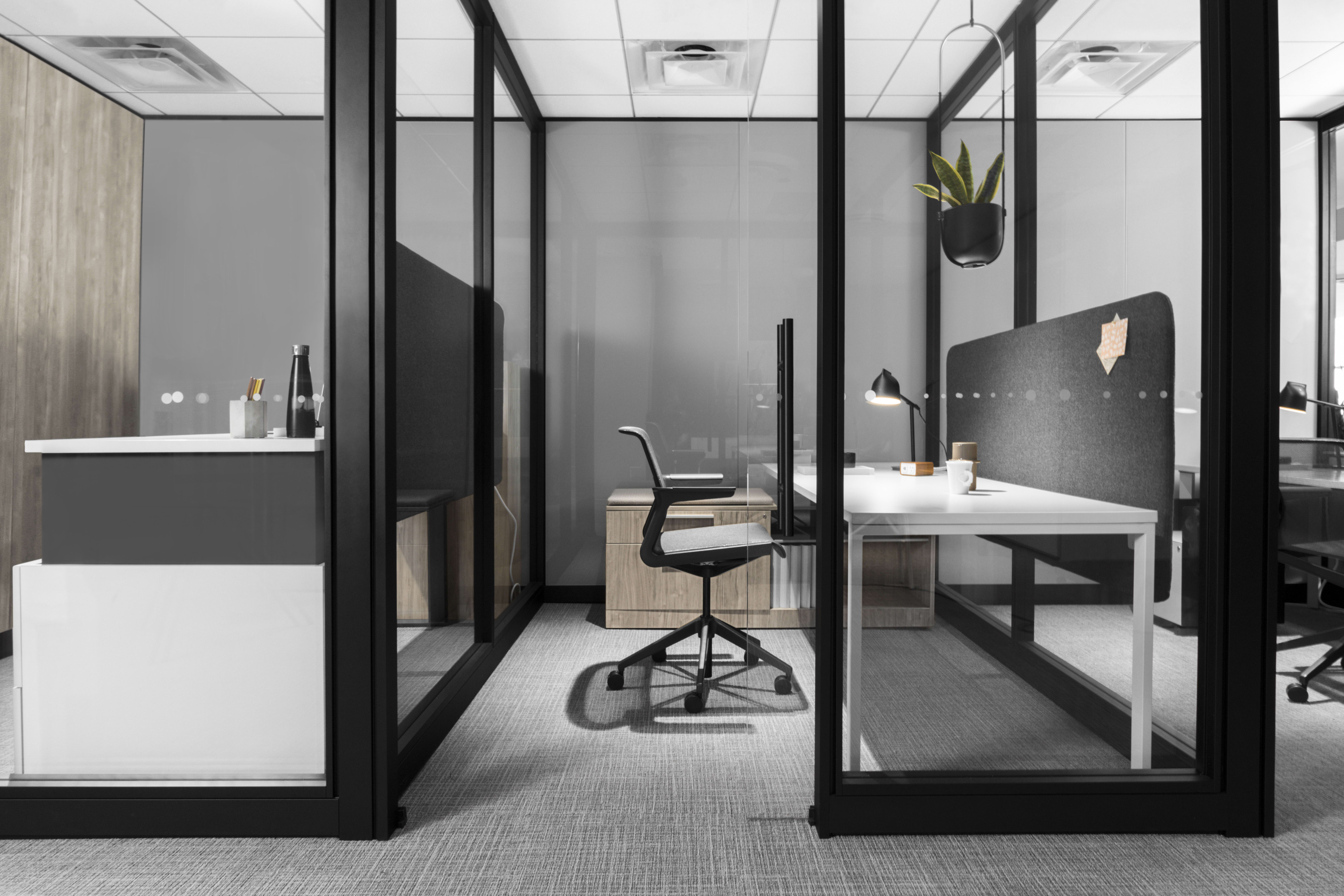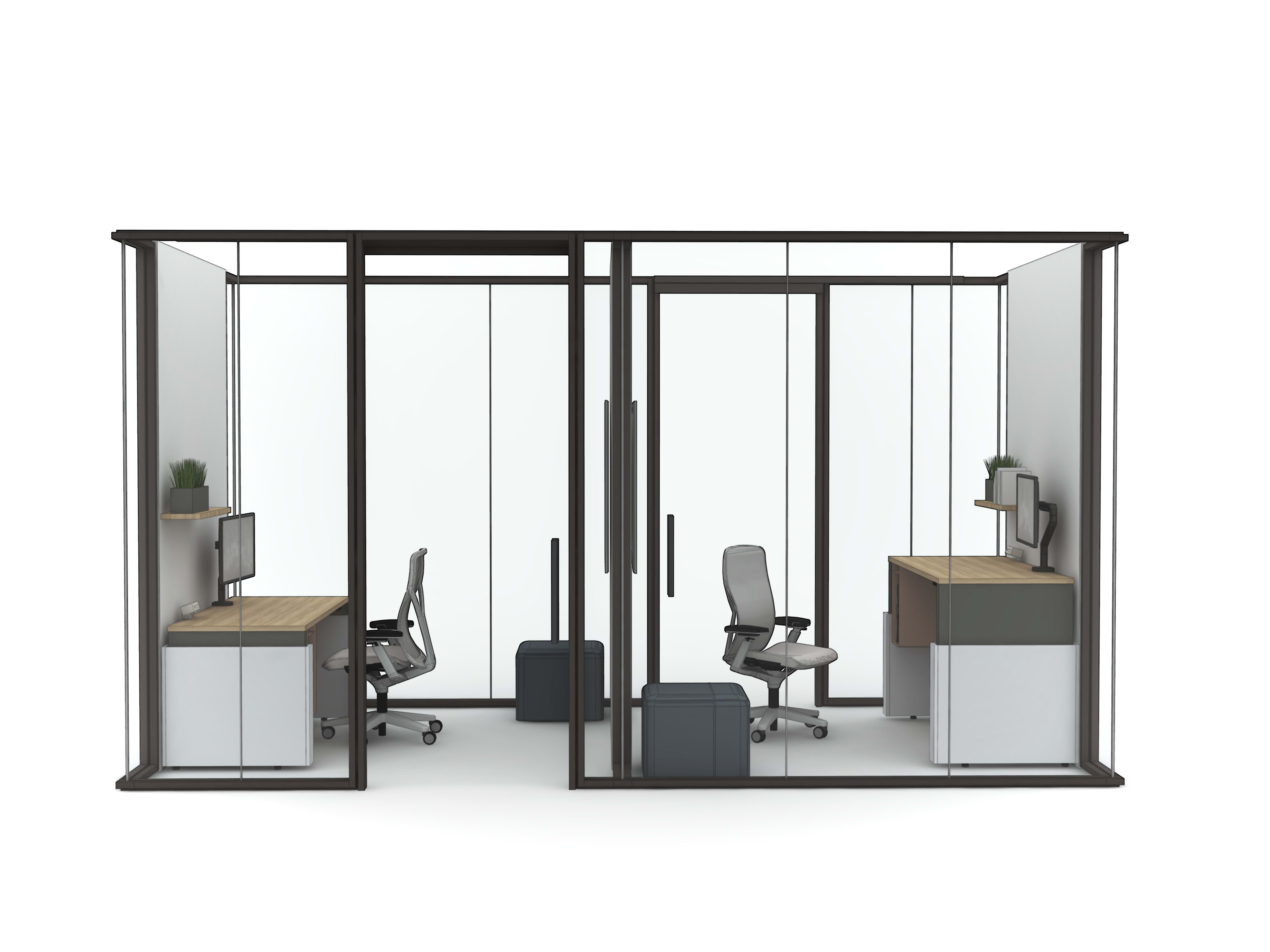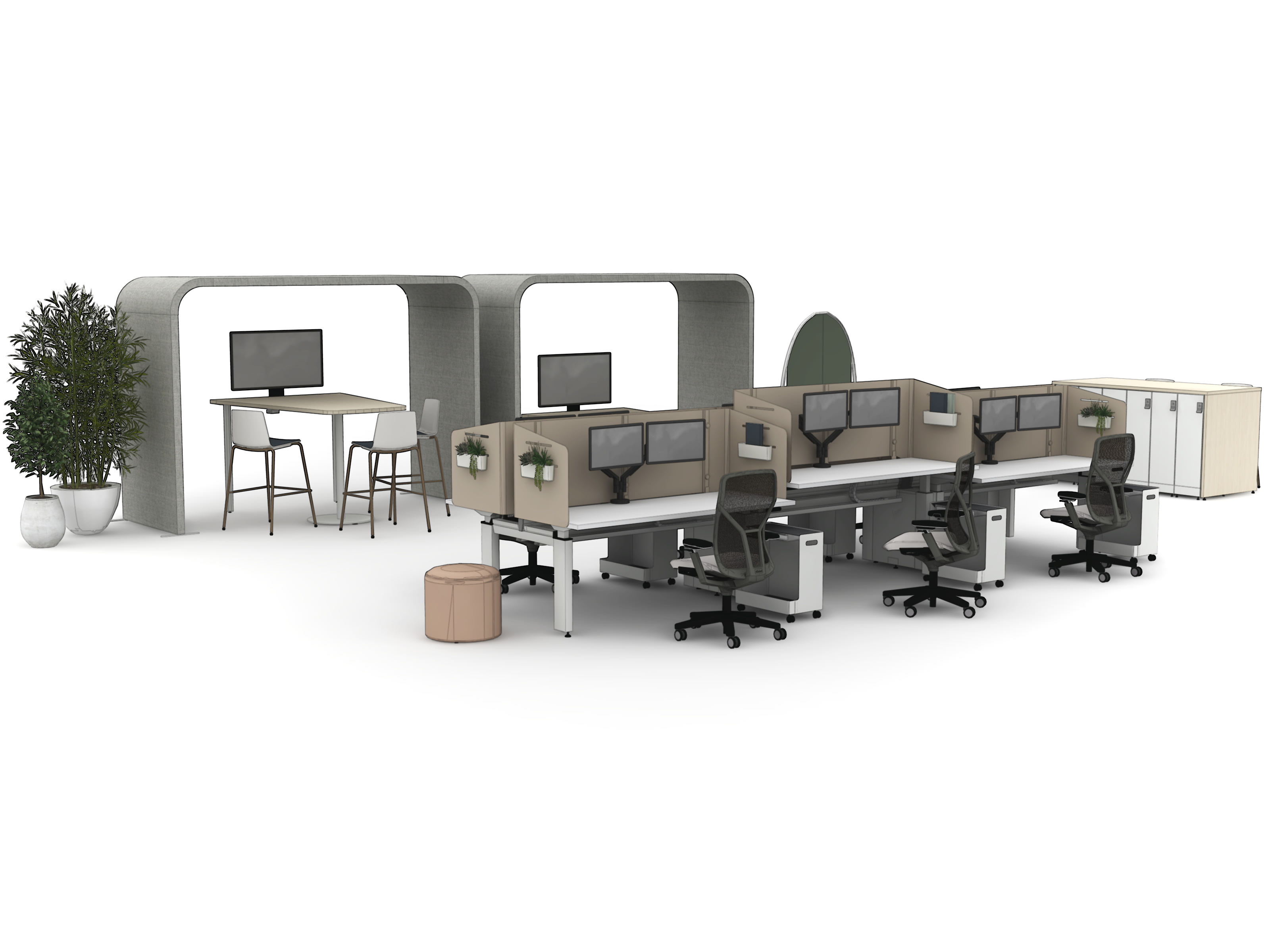Download the PDF Copy
Download
Poor acoustics are a source of frustration, distraction, and dissatisfaction in the work environment. The way we work is evolving. Design trends will continue to change but the impact of those changes on acoustics is often not considered. When acoustic implications aren't considered, these spaces are likely to be more distracting, less productive, underutilized, and unhealthy for workers.
Allsteel is invested in creating spaces that meet workspace needs on every level. We heard our clients’ desire for better acoustic solutions, and a simultaneous lack of clarity on how to achieve their goals. As such, we began a journey to better understand acoustics and to provide better solutions to meet our clients’ needs.
The Office is Changing
These changes have implications for acoustics. Consider how the differences in the following factors may change the perception of sound:
- More open plan workspaces
- More employees per square foot of office space
- Shorter desk partitions
- Fewer private offices
- Larger volume spaces with less sound absorption
- Exposed building systems
- Improved access to outside light (taller ceilings, more glass, shorter furniture systems)
- Easier access to communication devices (cell phones)
Key Phases of Adapting in the Evolving Workplace
Allsteel works with organizations through four crucial phases in a continuous, adaptive process to improve user experience, spatial effectiveness, and distributed work. These four phases are:
- Assess & Prioritize: Work together to identify needs and challenges, and establish goals. Consider what kinds of spaces and applications are needed and desired for the work tasks that are to be completed in the different work spaces.
- Consider & Solve: Understand available options and what products and/or protocols may help to meet defined goals.
- Implement & Feedback: Collect feedback on space satisfaction, effectiveness, and needs as employees use newly implemented spaces and products. Practice effective change communications to continually update users.
- Adapt & Reconfigure: Learn from updated spaces. What’s working and what isn’t? Utilize the latest findings from outside researchers and standards organizations on current acoustic data and make further improvements as needs change and evolve.
The way we work and the way we use the office differs across the floor plate. Because our expectations differ, acoustic design should not be the same for all spaces. Here, we introduce some acoustic considerations based on space type.
- Solo Space: People in certain roles need to be in the workplace to access resources they cannot access elsewhere; resources = technology, people, unique workspace, etc.
- Team Space: A large company in small community vs. a small company in larger city will have different consideration sets; access to talent, corporate real estate costs, and transportation.
- Community Space: How willing an organization is to support employee expectations of choice and control over where they work.
Solving for Sound with Solutions
Allsteel's product portfolio consists of an array of solutions that solve for acoustic considerations in design. From screens & dividers, to freestanding and architectural walls, as well as acoustical furniture solutions, we have crafted products designed to perform.




